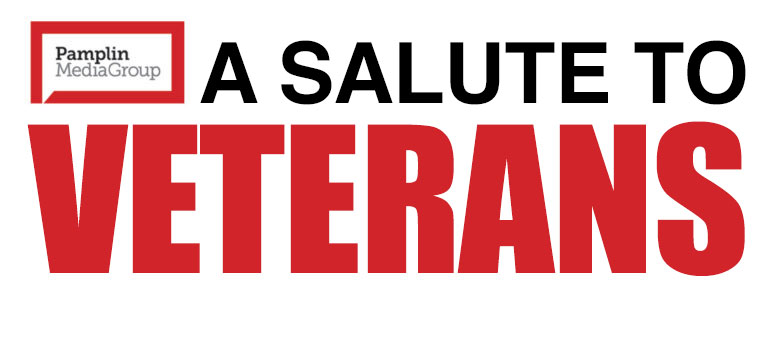A veteran and an educator
At Forest Hills Elementary School, Michelle “Shellie” Sheppard prides herself on her ability to communicate with anyone, which bloomed when she served in the United States Army.
“I think people will tell you this about Forest Hills: it’s really a magical place. The community is really tight. We celebrate a lot with each other. Everybody is so invested in the education of all the kids,” said Sheppard.
Sheppard has worked at Forest Hills as a special education assistant for the past nine years after serving as the Parent Teacher Organization president while her son was a student there.
Before joining the staff at Forest Hills, Sheppard worked as an early intervention specialist, a special education teacher, and a psychological operations specialist in the Army.
“I always thought it was really honorable to be in the military. First of all, my dad was so proud to be in the military,” said Sheppard. “I would say that my parents both really, and not by preach or by word, but really by example, were always very service-minded: service to your communities and service to others.”
Sheppard is from St. Johns in North Portland and attended Central Catholic High School. After graduation, she headed to Oregon State University, majoring in human development and family studies. Her father served in the Army for 33 years, and her mother was a nurse.
While at OSU, Sheppard participated in the Motor Clinic, which paired college students with kids struggling with motor functions.
“While I was doing that at Oregon State, I thought, ‘This is it. This is what I want to do.’ I just fell in love with it,” said Sheppard. “I wasn’t sure exactly what I wanted to do as a special ed teacher, but I had a friend and former roommate who went to the early intervention program at the University of Oregon, and she told me about it, and I liked what I heard, and so I applied and got in.”
Sheppard didn’t even consider following in her father’s footsteps until after graduate school when she was already working as a special education teacher and early intervention specialist.
Joining the military seemed like a new path she was familiar with because of her dad.
“I remember my dad when I was growing up saying to me a lot, ‘You know, you would love it. Your personality is perfect for it. You would just take to it like a duck to water,’” said Sheppard.
Sheppard scored exceptionally well on the Defense Language Aptitude Battery, a difficult testing process that involves recognizing patterns in made-up languages.
She was placed in the competitive psychological operations track of the U.S. Army, which focuses on communications, messaging, and assisting operations.
“I can never explain to people what it is exactly,” said Sheppard. “Essentially, they’re Special Operations forces, and PSYOP goes in first with all of the other Special Ops, does a targeted analysis of the community, military, and government, and then produces different media to persuade. There’s a lot of community involvement as well.”
Sheppard was struck by the crucial role that PSYOP played in the military’s mission and how her skills in education applied to her work in the Army.
Sheppard served eight years as a PSYOP specialist stateside from 1997 to 2005 and ended her career as a sergeant.
“To make somebody feel comfortable with you is absolutely a learned skill. As an early intervention specialist, I had to do that daily — I would have to walk into somebody’s house and make them feel at ease with having me there. So, I was really good at just connecting with people quickly, and I still am. But it went both ways; inside PSYOP, I knew that I would be able to talk with people from different cultures. I knew I’d be able to connect with people quickly because that’s what I did every day in education,” said Sheppard.
Through communication and helping others find their voices, Sheppard has set out to serve others, just like her parents.
“My mom said to me one time, ‘Why would you ever want to do a job where you weren’t helping people?’” said Sheppard. “Just by example, both of my parents did that, and I don’t think I’ve ever considered anything else.”


